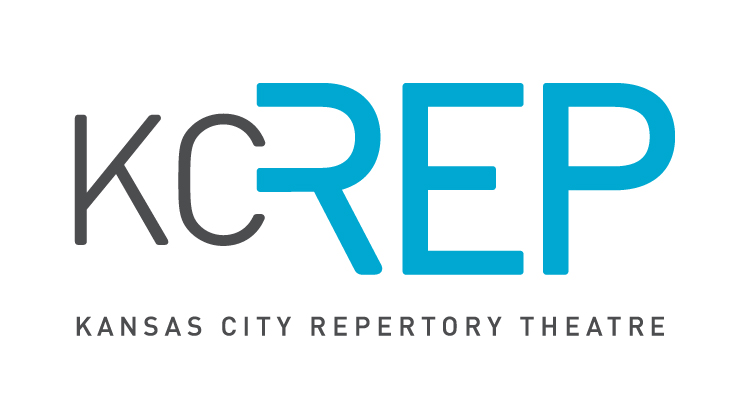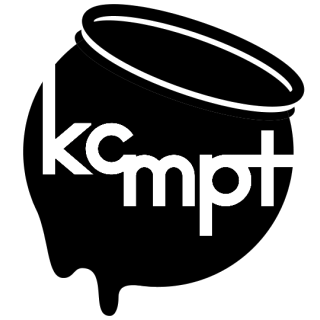
LMDA Conference 2024
Where: Kansas City Repertory Theatre — Copaken Stage & downtown spaces
When: June 27th - 29th, 2024
Greetings LMDA Conference Guests!
I am thrilled to serve as the 2024 LMDA Conference Producer, and it is my pleasure to welcome all of you to Kansas City!
Here you will find a beautiful and fitting backdrop for our conference theme: Dramaturgy Crossroads. Kansas City is known for being a cultural and historical crossroads of its own. Our region was originally home to various Indigenous Tribes including the Osage and Kansa (Kaw), whose influence continues to permeate this area. During the 1920s and 1930s, Kansas City also became a major epicenter of jazz and nightlife.
Today, our city continues its long tradition of being a crossroads of culture, music, and artistry. During the 2024 LMDA conference weekend, we look forward to cultivating spaces where the crossroads of cultures, identities, abilities, and generations will thrive. Welcome to Kansas City!
Melonnie Walker
2024 LMDA Conference Producer
Conference Information
Registration
On Thursday, June 27th the Registration Desk will be on the first floor of the H&R Block training center (1 H and R Block Way, Kansas City, MO 64105).
On Friday and Saturday, the registration desk will move to the second floor, where many of the conference sessions will be held.
Meals
The only meal provided with full conference registration is Saturday evening’s banquet. However, there are plenty of places nearby to grab a bite to eat throughout the conference.
If you purchased a regional lunch with your registration, volunteers will direct you where to go on Friday afternoon. If you didn’t purchase a regional lunch in advance, you can do so at the Registration Desk for $20.
Conference Bar
Want to keep the conference camaraderie going after the day’s sessions have ended? Join us at the conference bar!
Folks can take in food, libations, and good conversation at BarCENTRAL, located on the first floor of the conference hotel.
KC Marriott Downtown
200 W 12th Street, Kansas City, MO, 64105
Accessibility
LMDA strives to create fully accessibly programming at all of our events and gatherings. If you have accessibility needs that have not yet been addressed, please reach out to a member of the conference team at conference@lmda.org.
Select conference sessions will be ASL interpreted by Turner Interpreting.
Slack
LMDA is now using Slack as a communication platform for the membership and we are happy to provide a Slack channel specifically for keeping in touch before, during and after your time in Kansas City.
We hope that Slack can be a useful tool for conference registrants to receive conference announcements as well as communicate with one another about about ancillary activities like carpooling/ridesharing, tourist activities, photo sharing, and emergent events.
As a member benefit, you should have received information on joining our Slack channel in the welcome letter you received when purchasing or renewing your membership. If you did not receive the letter or have questions about our Slack community, you can contact Heather Helinsky, LMDA's VP of Membership, at membership@lmda.org.
Kansas City Information
Getting Here
The closest airport to both the conference accommodations and venue is Kansas City International (MCI), which is located approximately 22 miles away (25 minute drive).
At the Kansas City International airport, you can rent a car, use app-based ridesharing services (~$30 - $45), schedule a shuttle, or catch a taxi downtown to the hotel or venue. For more information about transportation services from the airport to downtown Kansas City, please visit FlyKC.
Getting Around
While app-based ride-sharing services are available throughout the city, you may want to make use of Kansas City’s public transportation to get around:
- The Kansas City Streetcar is an electric streetcar that runs from the River Market to the Crown Center. It is free to ride and provides an easy way around the downtown area.
- RideKC is the local transportation authority, providing free or low-cost bus and bike options for getting around the city.
- Bird hosts electric scooters for private use in the city! Download their app for more details.
Some conference events take place off-site (Hot Topics, LMDA + Dramatists Guild Mixer, and the banquet), and attendees are responsible for transportation to and from these events if they’d like to attend.
Important Addresses
While app-based ride-sharing services are available throughout the city, you may want to make use of Kansas City’s public transportation to get around:
While a bulk of conference programming will take place at the H&R Block Center, some events will occur off-site.
Here are the addresses for the conference venue and off- site spaces:
- Conference Venue (H&R Block Center)
1 H and R Block Way, Kansas City, MO 64105 - Conference Hotel (KC Marriott Downtown)
200 W 12th Street, Kansas City, MO, 64105 - Hot Topics & DG Mixer (KC Melting Pot Theatre)
3051 Penn Valley Drive, Kansas City, MO 64108 - Conference Banquet (Rockhill Grille)
2000 Grand Boulevard, Kansas City, MO 64108
COVID Information
LMDA adapts to each conference location’s up-to-date guidelines and we will continue to be mindful in addressing Covid protocols in Kansas City. For the most up-to-date information regarding Covid protocols, please visit the Jackson County website.
- Testing
- We suggest that you take a rapid antigen test on your day of travel and again on the day you return home.
- If you develop symptoms that could be Covid-19, please refrain from attending conference events. Be in touch with a member of the conference committee for assistance and support
Asynchronous Presentations
The Crossroads of Fantasy, Denial, and Retail Reality at the Mall
Members of WOOMcollaborative Andrew Houston, Joanna Cleary, and Brooke Barnes
In early 2020, members of WOOMcollaborative sought inspiration for a performance project at a mall. This mall existed in the middle of a mid-sized city in southern Ontario, Canada, called Waterloo. Similar to most malls in mid-sized cities in Canada, this mall was—and still is—dying. This death cycle seemed intriguing as a creative resource; when the COVID pandemic hit, it seemed all encompassing. For two years, we labored to realize and animate aspects of this retail landscape that addressed the very real feel of precarity we all faced. This labor assumed a form of dramaturgy (the work and weave of actions) that materialized crossroads between the mall’s built environment and the natural landscape upon which it exists, between collaborators and their lived experience of retail, and ultimately between our performance practices (writing, acting, video and soundscape creation) and the practices of retail.
At the core of our practice is a concern for how at the crossroads of fantasy and denial a space of misery and exploitation may exist. Most retail in the 21st century, especially with almost all of it online, exists because people have the capacity to fantasize. Fantasy designates our ‘impossible’ relationship to the person, thing, or lifestyle that we most desire. Fantasy is usually conceived as a scenario wherein a person’s desire is realized, and this basic definition is adequate so long as we take it literally; that is, what fantasy stages is not a scene in which desire is fulfilled, fully satisfied, but on the contrary, a scene that realizes—that stages—desire as such. It is only through fantasy that a person is constituted as desiring; in other words, through fantasy we learn how to desire, and Mall of Maladaptive Dreaming attempted to realize the crossroads of theatre and retail in this form of learning.
Just as retail is in decline, the ways of living we knew before the pandemic have become inaccessible. We are at a metaphorical crossroads between accepting reality as it is and coping in more maladaptive ways—such as through fantasy. Theatre, like retail, is one of these fantasy spaces where we can immerse ourselves in a world more seductive and pleasurable than the one where we live. In Mall of Maladaptive Dreaming, we strove to deconstruct the ways in which retail and theatre create fantasy spaces that pose questions about how we stage desire.
As well as creatively responding to a retail space in this piece, we were essentially ‘collaborating’ with mannequins. Originally called Gaba girls, after their creator Lester Gaba, these beings gradually assumed an increasing presence in our creative work. Indeed, in spending about two-years with these peculiar representations of women, we wondered what happens when a Gaba girl becomes a sort of object of desire in a retail context. Lacan’s definition of an object of desire—an objet petit a —states that as soon as a person, or, in this case, a thing, becomes elevated by our desire, it starts to function as a kind of screen or empty space on which we project our fantasies. In this performance, the Gaba girl was a sort of a void filled out by fantasy. Perhaps not unlike the use of ‘smart’ technological objects that are growing more prevalent, the Gaba girl promises much but delivers less than we want or need.
Credits:
- Video of the woman in the creek (Gisel Sarahi Vergara Herrera) and the virtual tour of The Shops
by Gary Kirkam - Video recording of conference presenters
by Andy Wright (IG @only1andywright) - Video editing of LMDA digital presentation
by Brooke Barnes
Check out our website and our archive page to learn more about Mall of Maladaptive Dreaming.
See you at the mall!
WO
OM
Land Acknowledgement
To recognize the land is an expression of gratitude and appreciation to those whose territory we reside on and a way of honoring the Indigenous people who have been living and working on the land from time immemorial. It is important to understand the long-existing history that has brought us to reside on the land and to seek to understand our place within that history.
We would like to acknowledge KC Rep’s theatre sits on the traditional, ancestral, and current home of Native Americans, Indigenous, and First Nations people. I ask you to join me in acknowledging the many tribal groups from our area including the Osage, Kaw, Missouria, Shawnee and Wyandot tribes. We honor the elders both past and the present and this calls us to commit to continuing to learn their stories as well as how to be better stewards of the land that we occupy.






